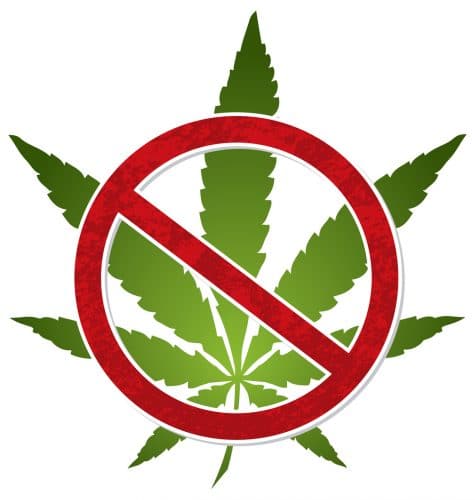The issue of pilot intoxication has received a fair amount of media attention in Canada over the past few years. We have seen jail sentences imposed on airline pilots, a heavily publicized incident involving an intoxicated Sunwing pilot, and the fatal Carson Air Accident in 2015 (where investigators found significant levels of alcohol in the pilot’s bloodstream). With the impending legalization of marijuana on October 17, 2018, it is a good time to consider the current regulatory framework for drug/alcohol testing in this new context.
Drug and Alcohol Testing
In Canada, there is no regulation that requires drug or alcohol testing for pilots. In both India and Australia, breathalyzer tests are carried out on flight crews. In the United States, federal regulations require that employers conduct random alcohol testing among 10%, 25% or 50% of employees in safety sensitive functions (including pilots).
The implementation of drug/alcohol testing in Canada would face some legal challenges. In 2013, the Supreme Court of Canada (in C.E.P., Local 30 v. Irving Pulp & Paper, Ltd., 2013 SCC 34) held that drug and alcohol testing is only permissible in inherently dangerous work environments in two scenarios:
“for cause” testing of individual employees where there are reasonable grounds to consider they may be under the influence of drugs or alcohol; where an employee has been involved in an accident or other incident causing safety concerns; or
if an employer can demonstrate that there is a generalized problem of drug or alcohol abuse in an inherently dangerous workplace.
Employers who attempt to implement a drug and alcohol testing policy likely run the risk of a legal challenge to the policy. Furthermore, any attempts to legislate mandatory testing by federal regulators could be open to a challenge under Canada’s Charter of Rights and Freedoms, on the basis of a the right to life, liberty, security of the person, or the right to be secure against unreasonable search or seizure.
Operation of Aircraft while Intoxicated
The Canadian Aviation Regulations (CARs) state that no person shall act as a crew member of an aircraft:
(a) within eight hours after consuming an alcoholic beverage;
(b) while under the influence of alcohol; or
(c) while using any drug that impairs the person’s faculties to the extent that the safety of the aircraft or of persons on board the aircraft is endangered in any way.
In anticipation of the legalization date for marijuana, the federal government has recently passed several pieces of legislation concerned with imposing criminal penalties for operation of vehicles under the influence of marijuana,
On June 21, 2018, Bill C-46, An Act to amend the Criminal Code (offences relating to conveyances) received Royal Assent. Bill C-46 added provisions to section 253(3) of the Criminal Code, creating hybrid and summary offences if within two hours after ceasing to operate or assist in the operation of an aircraft, a person has a blood drug concentration over the limit prescribed by regulation. The prescribed limit is set out in The Blood Drug Concentration Regulation, published in the Canada Gazette, Part 11 on June 27, 2018. A person is guilty of a hybrid offense if they have a blood drug concentration over 5ng/mL of THC, and a summary offence if they have a blood drug concentration between 2ng/mL and 5ng/mL.
Carson Air TSB Report
Following the Carson Air Accident in April 2015, the TSB released a report in November 2017, recommending that the Department of Transport work with the Canadian aviation industry and employee representatives to develop and implement requirements for a comprehensive substance abuse program, including drug and alcohol testing, to reduce the risk of impairment of persons while engaged in safety sensitive functions. The TSB noted that the requirements should consider and balance the need to incorporate human rights principles with the responsibility to protect public safety.
In February 2018, Transport Canada provided a response to the TSB, which noted that there are already stringent medical requirements in place for obtaining a pilot’s license. Transport Canada further noted that under the Aeronautics Act, all physicians are required to report any medical conditions that may constitute a hazard to aviation safety to Transport Canada.
Transport Canada emphasized that it would continue to engage and collaborate with the Canadian aviation industry and employee representatives on this issue. Transport Canada held a “Fit to Fly” workshop in early June 2017, which brought together stakeholders from across the aviation industry to promote aviation safety culture within the aviation community and raise awareness about mental health and substance abuse. One of the panels at the workshop, entitled “Prevention, Implementation, and Measuring Success”, discussed random/mandatory drug and alcohol testing and enforcement.
Transport Canada also announced that in the fall of 2018, it would be launching an awareness campaign on substance abuse in aviation with the goal of educating the aviation community in recognizing substance abuse related symptoms and provide guidance in addressing possible problems.
Transport Canada also identified that currently, operators may administer alcohol and drug testing on flight crew members based on reasonable grounds of suspicion of impairment (“for cause” testing), as well as following an accident or incident. Pilots with a previous diagnosis of substance abuse may be subject to drug and alcohol testing to ensure compliance with the abstinence provisions of their certificate.
However, Transport Canada indicated that mandating any random drug and alcohol testing would require further analysis to determine the most effective means to address the recommendation while considering privacy and human rights issues.
Transport Canada also indicated that it is currently reviewing policy on impairment, specifically taking into account Bill C-46, and considering a number of approaches, including performing pre-employment testing for substance use, performing mandatory random substance use testing, and increasing the minimum time between consuming drugs/alcohol and beginning duty. This analysis is expected to be completed by fall of 2018.
In the meantime, the Director General of Civil Aviation has recently addressed a letter to the Canadian aviation community regarding impairment, including impairment caused by cannabis, in advance of the October 17, 2018, legalization date. The letter emphasizes that the CARs currently prohibit the use of cannabis by all members of a flight crew and that the transportation of cannabis across international borders remains illegal. The Director General states that Transport Canada will continue to work with Justice Canada, Health Canada, and Public Safety Canada to ensure that the issue of impairment receives proper policy and legal analysis to maintain aviation safety while balancing the legal rights of employees.
Several carriers have also announced that they will be implementing marijuana specific policies, including prohibiting marijuana use by employees in safety critical positions. As Canada enters a new frontier with the regulation and legalization of marijuana, all industries, including aviation, are considering the impact that this new “legal vice” will have on their businesses.




